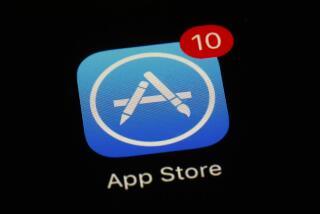An iBrick wall
Apple Inc. has stoked the public’s ardor for its market-dominating iPod music players by steadily adding innovative styles and features. But the first upgrade for Apple’s new iPhone gave consumers something much less attractive: It wiped out all programs not made by Apple and, in some cases, turned the mobile phones into useless metal and glass bricks.
Available as a software download, the upgrade was ostensibly designed to enhance the device’s capabilities. For example, it enabled users to download songs wirelessly from the iTunes store and boosted the speakerphone’s volume. At the same time, it eliminated a long list of unauthorized add-ons, including instant messaging, Internet calling and eBook reading. The most contentious of these were programs that unlocked the phones so they could be used on networks other than AT&T;’s.
Shortly before it released the upgrade, Apple warned that many unlocking programs damaged the phones in such a way that they would probably become useless if the new software were installed. That’s what happened to hundreds of unlocked iPhones -- but also to hundreds of unmodified iPhones, according to Engadget, a website devoted to electronics. Some owners have revived their phones with Apple’s help; others have found ways to roll back the upgrade, restoring the add-ons but not the unlocking software.
Apple’s hostility toward independent software developers is understandable, but only to a degree. Users who move their iPhones off AT&T;’s network reduce the subsidies Apple receives from AT&T.; Independent music and movie programs compete with the iTunes store. And if a third party’s program causes the iPhone to malfunction, Apple’s tech support staff takes the hit. Yet these weren’t the reasons Apple gave for opposing add-ons. Instead, Chief Executive Steve Jobs said the company was concerned about damage to AT&T;’s network -- the same argument Ma Bell used in the ‘50s and ‘60s to defend its monopoly on phone equipment.
The market for mobile devices is a highly competitive one, and Apple shouldn’t be compelled to accept third-party software on its shiny new phone. Yet it’s swimming against the tide here. As devices such as the iPhone blur the lines between cellphones and computers, software developers and service providers are flooding into the mobile arena. Companies that help those developers build on their products will benefit first from their innovations. That’s why Nokia, whose sales dwarf Apple’s, takes that approach. In a sense, Apple is fighting its own success: It sells a compelling phone that people want to write programs for. Rather than trying to thwart those enthusiasts, the company should give them a platform on which to work.





